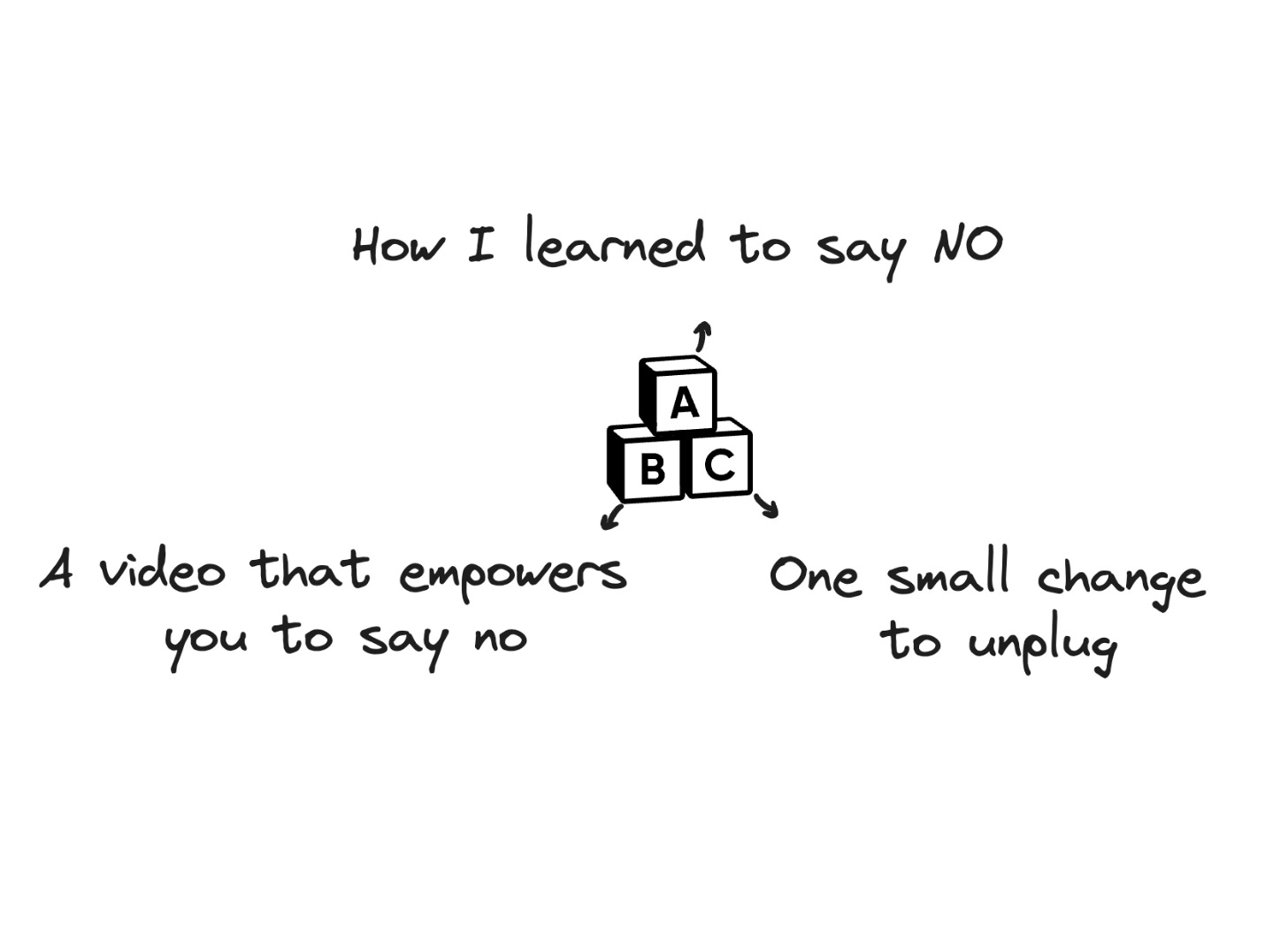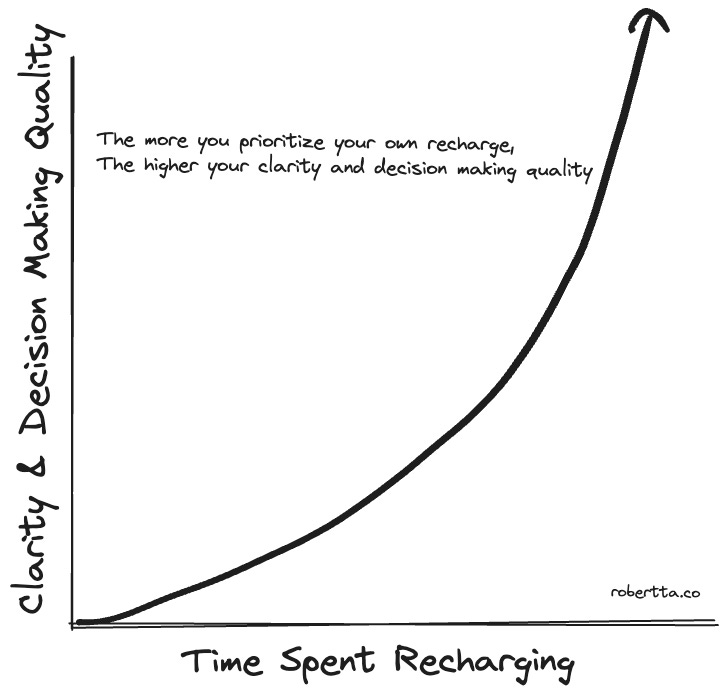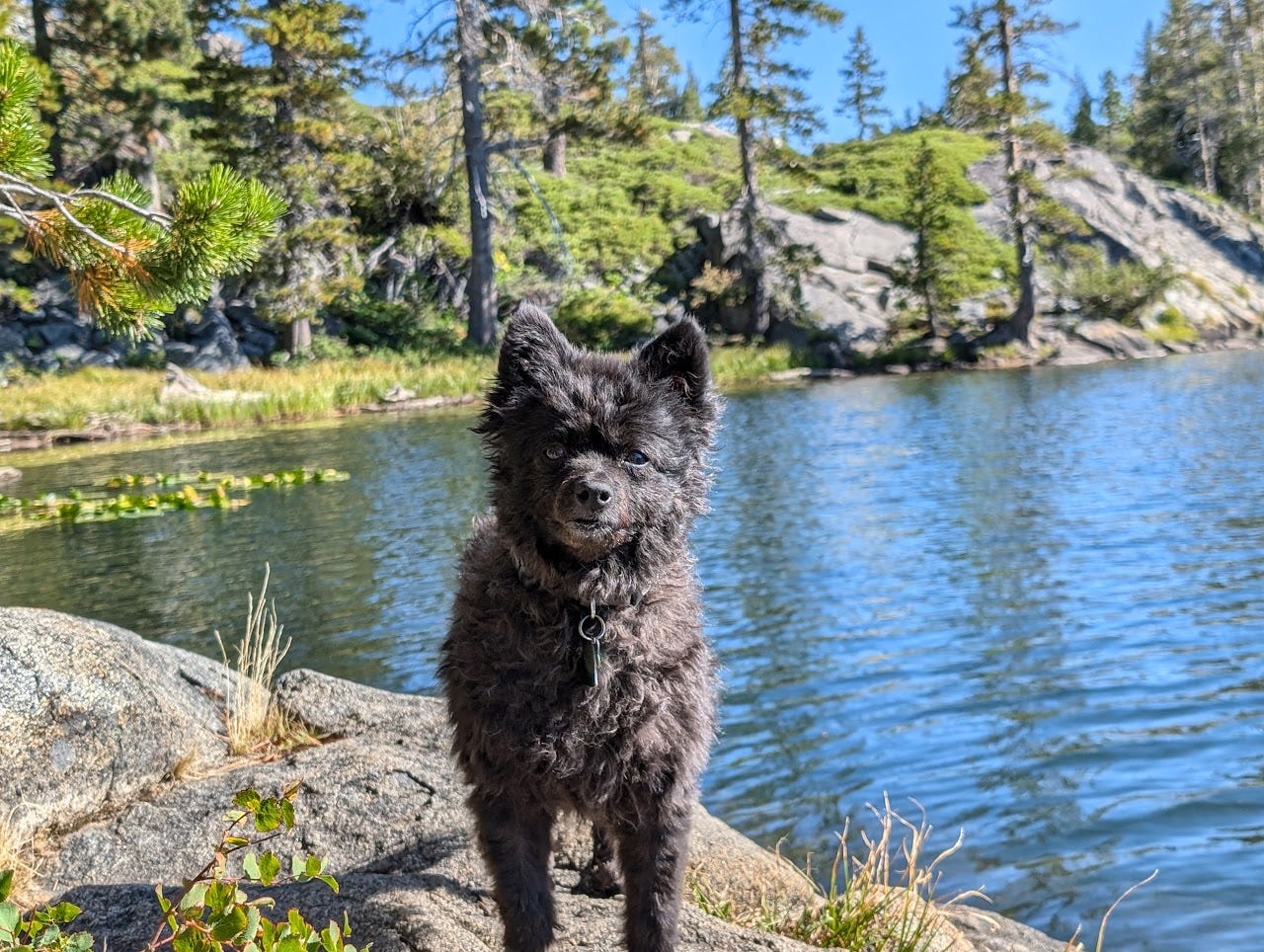🇦 🇧 🇨 The Secret To Success and Happiness Is In 1 Word
The greatest leaders have mastered this skill, and you can too
Hey there! I’m Robert. Welcome to a free edition of my newsletter. Every week, I share 1 piece of advice 📖, 1 breakthrough recommendation 🚀, and 1 challenge 💥 to help product and technology leaders achieve a growth mindset, transform their communication & influence, and master their emotions. Subscribe today to become the person and leader that people love, respect, and follow.
I used to think saying “yes” was the only way to prove my worth.
For years, I believed that to be a successful leader, I had to be "always on."
Responding on Slack after work.
Answering emails at midnight.
Taking calls during dinner.
Even on vacation, my mind was constantly working through problems.
Because I couldn’t disconnect, I felt…
Overwhelmed…
Anxious…
Exhausted…
And here’s what I learned the hard way after 10 years in tech: that’s the fast track to burnout.
My inability to say “NO” made me less effective over time.
Sound familiar?
I used to wear my hustle badge like a badge of honor. You’ll even hear people talk about it that way—it’s romanticized in American culture especially.
But it’s nothing to be proud of.
Sure, take pride in your hard work.
And take even GREATER pride in working hard on your life.
I learned the truth—disconnecting and saying no isn’t a luxury, it’s a necessity.
In fact, it’s one of the most important skills you can develop as a leader.
And it’s not just for your happiness—it’s for your team, your products, your customers, and your future success.
Let me show you why.
This Week’s ABC…
Advice of the Week: How I learned to say no and disconnect—and why it changed everything.
Breakthrough Recommendation: A video that will empower you to say no.
Challenge: One small change to start the process of unplugging this week.
Advice of the Week: Why saying NO is key to better leadership
It’s easy to say yes to anything and become distracted. I see people do it all the time (myself included).
Remember this:
Saying yes too often means saying NO to what truly matters.
Saying no more often means saying YES to what truly matters.
You’ve probably heard the saying, “You can’t pour from an empty cup.”
You can’t.
When you’re constantly plugged in, you lose perspective.
You make rushed decisions, miss critical insights, and become reactive instead of strategic.
And the worst part?
You become exhausted, frustrated, and lose your creative edge.
It turns out that saying no is the key skill to focus & happiness.
So how do you actually disconnect and say no?
Set boundaries with your time.
Block off non-negotiable time for yourself, even if it’s just an hour. This is sacred time where you step away from work to recharge—by yourself, with your family, with your partner, with your dogs, whatever you need. Set up a transition from work-life to home-life.Delegate and trust your team.
If you’re holding onto everything because you think you have to, stop. Let your team take ownership of their work and give them the space to succeed (and yes, fail and learn).Shift your mindset.
Realize that productivity doesn’t always mean doing more. Sometimes, it means doing less but doing it better. Give yourself permission to disconnect. There will always be more work. It’ll be there when you’re back.w
I have a saying:
Try hard, every single day, at everything - even relaxing.
Because your batteries will always need recharging… so you might as well go hard at that just like you go hard at work.
Why this works:
When you disconnect, you return with clarity.
You see the big picture.
You become a more thoughtful, effective leader because you’re not running on empty.
And guess what? Your team thrives too.
They’re less likely to burn out when they see you leading by example.
Breakthrough Recommendation: The Power of Saying No – TED Talk by Kenny Nguyen
If you’ve ever struggled to balance too many commitments and felt like you were constantly stretched thin, Kenny Nguyen’s TED Talk will resonate deeply.
He walks you through how the word “no” can be your most powerful tool for staying focused and achieving clarity in both work and life.
Nguyen shares personal stories of how always saying “yes” led him down a path of burnout and regret.
The turning point?
Learning to say “no” and realizing that it opened doors for better opportunities and more intentional focus on what truly mattered.
Why It’s Awesome:
This talk goes against the grain of the “always on” culture by normalizing saying “no”.
I love it for that reason.
Saying No leads to…
Reduced Burnout: Constantly saying “yes” leads to stress and exhaustion. Learning to say “no” helps you preserve your energy.
Sharpened Focus: It allows you to prioritize what’s truly important and cut through the noise.
Higher Confidence: Saying “no” empowers you to make decisions that align with your long-term goals, making you feel in control of your own direction.
My Favorite Quotes:
“The more I said yes, the more I lost myself.”
I love this quote because It perfectly encapsulates the danger of saying yes to everything and why we need boundaries.
I’ve been there too—lost amongst a sea of yes’s.
How Can You Say No More Effectively?
I coach and mentor a lot. Many of those I help have an issue saying no because…
They feel bad to say no
They feel like they’re letting somebody down
They feel like they’re missing out
The reality is that saying “NO” is a skills. You can build that skill, just like any other.
Try this: “Hey that sounds really interesting, let me think about it and get back to you.”
Establish Non-Negotiable Boundaries In Your Schedule
Take your workout schedule, your time with family, etc. and put them in your calendar.
This makes it easier to say no when things conflict.
The work will be there, your pet/kid/partner won’t.
And here are 3 tactical ways to say “No” to asks so you can achieve focus (with your team as well):
1. Offer Alternatives
→ Instead of going for a straight-up "no," toss in a different solution that works for everyone.
Example: "I can’t make the meeting on Thursday, but I’d be happy to check out the notes later and share my thoughts."
2. Highlight Mutual Goals
→ Focus on common goals while pointing out why the timing or situation may not be the best for this request.
Example: "I’m really focused on hitting our quarterly goals, that’s why I can’t help with this one."
3. Show Empathy and Appreciation
→ Acknowledge the request with some empathy and appreciation.
Example: "I totally get how important this is and I wish I could help. I really appreciate you thinking of me, but I can’t help right now."
Check out Kenny’s talk here.
What I Did This Week
This week, I had a huge “no” moment.
I was asked to take on a side project that sounded REALLY fun. It was super enticing to say yes.
Though, I knew deep down it would interfere with my long-term goals.
It was hard to say no, but I reminded myself of the value of focusing on what truly matters.
It didn’t feel great immediately. I thought I was missing out, and felt a little bad.
The day after I said no, I had a mountain of work to do.
I then felt a deep sense of relief that I saved myself from even more work on top of my already full plate.
Gotta keep it up.
Gotta keep focusing on what truly matters.
Challenge: Say No To One Thing
This week, challenge yourself to say NO at least once to something that doesn't serve your long-term goals.
It could be a meeting, a side project, or even a social event.
Reflect on how it makes you feel afterward.
Does it open up time for things that matter more?
You got this!
Liked this article? 💚 Click the like button.
Feedback or addition? 💬 Add a comment.
Know someone that would find this helpful? 🔁 Share this post.
Please take a 5 second survey to help me make this newsletter better for you.
P.S. Want reminders on growth, empathy, and leadership? Follow me on LinkedIn, Threads, and Twitter.








This article was written for me! Thank you Robert